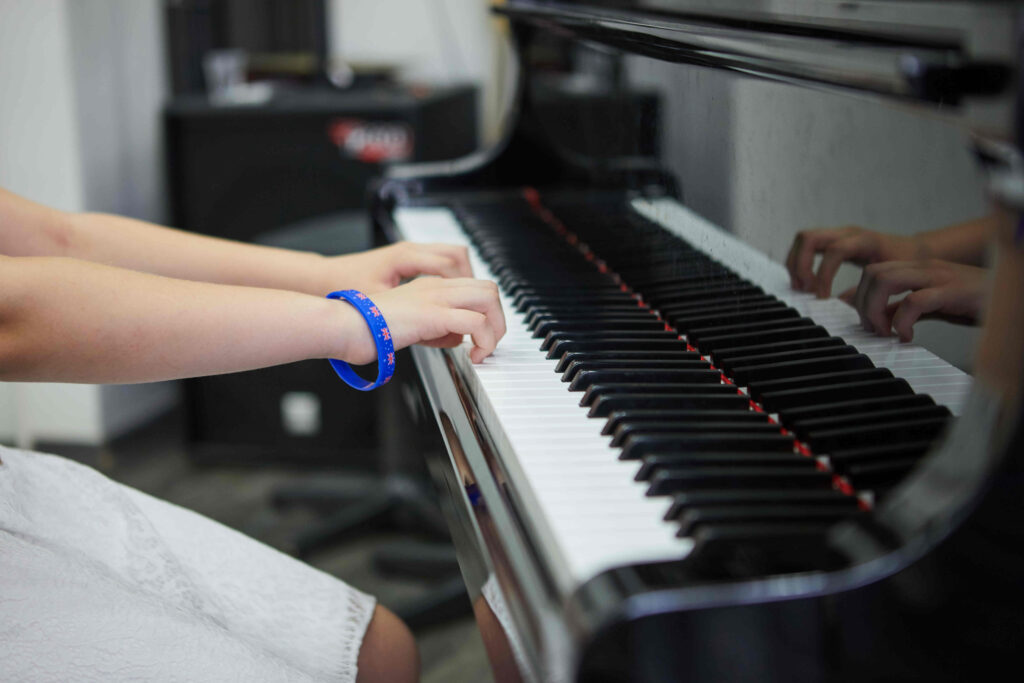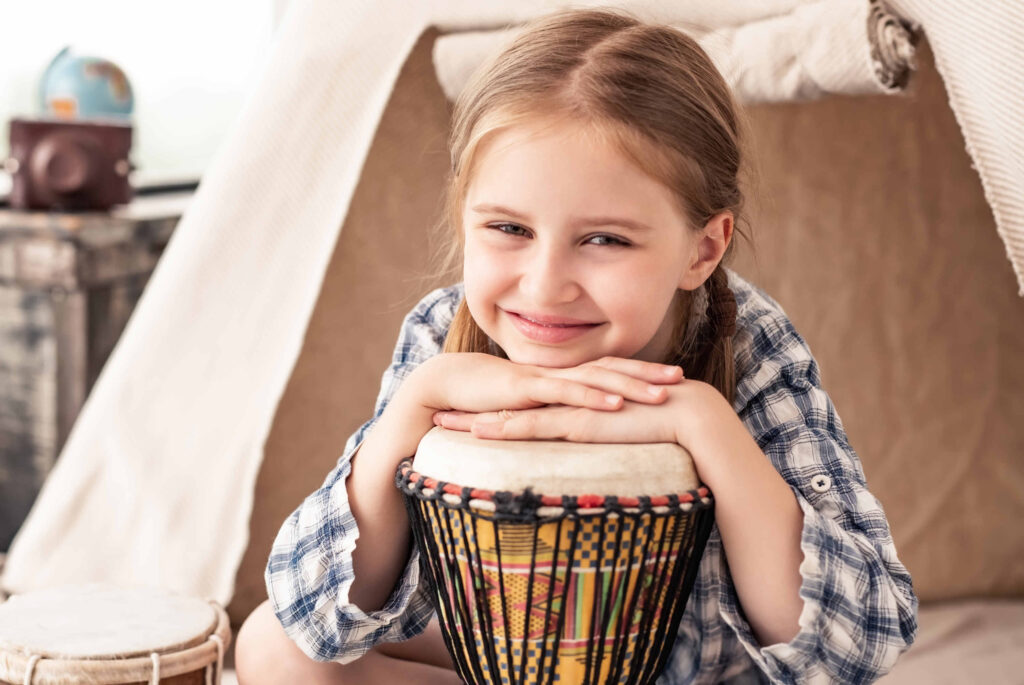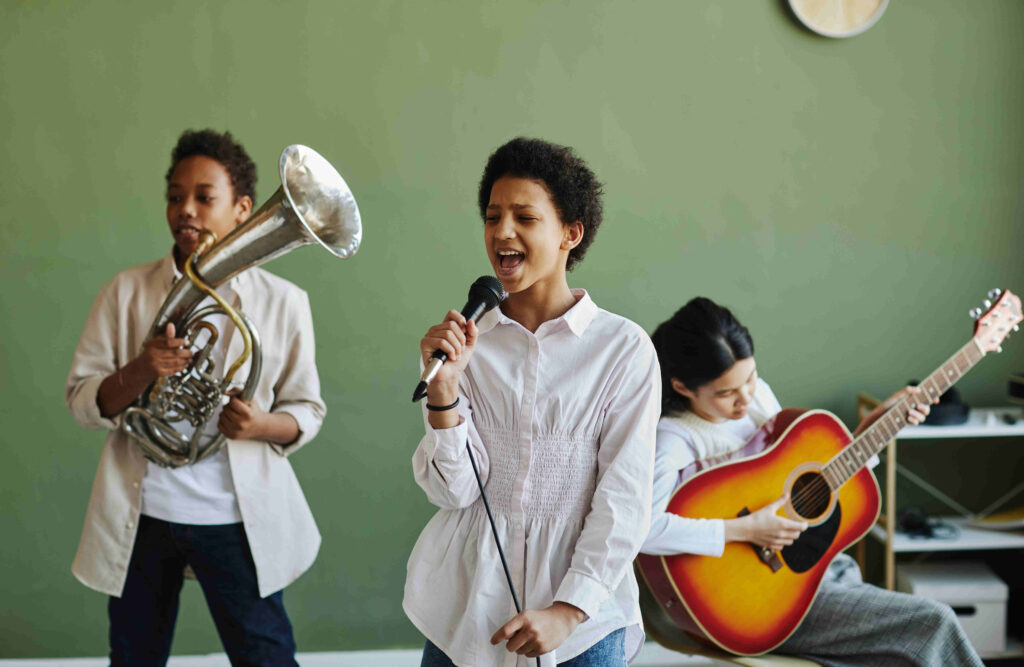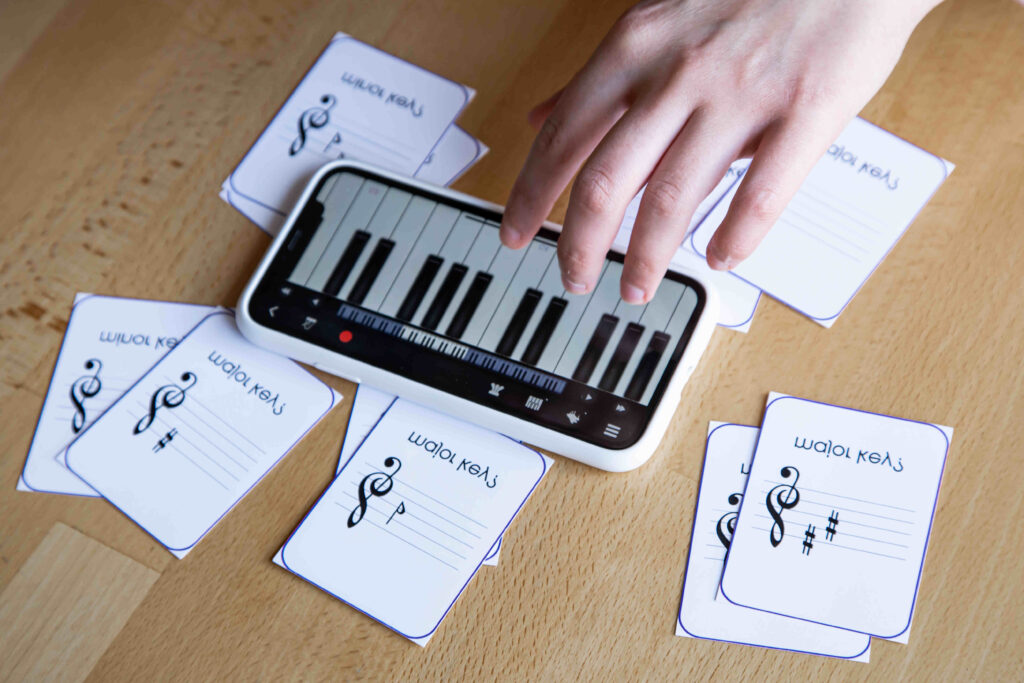Music
- Home
- Music

- Overview
- What They Learn
- Benefits
- Practical Info
At DonasTraining, our piano classes are designed to spark curiosity and nurture musical growth in young learners.
We combine structured learning with playful exploration, allowing each child to discover music at their own pace. From the very first lesson, students are encouraged to listen, express, and connect with the instrument through age-appropriate techniques and fun activities.
Whether your child is a complete beginner or already tapping out melodies, our approach focuses on building confidence, creativity, and a solid musical foundation — all in a caring, supportive environment.
Our piano classes gently introduce children to the language of music, combining fun activities with skill-building to create a strong foundation.
They will learn to:
- Recognize and read musical notes and rhythms
- Use proper hand posture and finger technique
- Play simple melodies and songs with both hands
- Understand basic music theory (scales, chords, dynamics)
- Listen actively and play by ear
- Develop good practice habits and musical discipline
Through these elements, students not only become better players — they also gain focus, patience, and a lasting appreciation for music.
Piano combines discipline and creativity, offering lifelong skills far beyond music.
Key benefits include:
- Improved memory and focus
- Better motor coordination
- Boosted self-esteem through visible progress
- Sense of accomplishment from solo and group performance
- Enhanced auditory and spatial reasoning
Piano helps children grow musically, mentally, and emotionally.
Key benefits include:
- Enhances self-expression and communication
- Strengthens memory and listening skills
- Builds emotional awareness and confidence
- Encourages teamwork and stage presence
Through singing, children grow both musically and personally.

- Overview
- What They Learn
- Benefits
- Practical Info
At DonasTraining, our singing classes help children discover the power of their own voice in a supportive and joyful environment.
Each session blends vocal technique with creativity, encouraging kids to explore melody, rhythm, and expression while having fun.
From warm-ups to performance games, children learn to sing with confidence — whether solo or in a group.
Singing lessons focus on building vocal control, musicality, and stage presence, adapted to each child’s age and experience.
They will learn to:
Breathe correctly and support their voice
Sing on pitch and develop vocal range
Recognize melody and rhythm by ear
Articulate clearly and project the voice
Interpret lyrics and convey emotion
Build confidence through group and solo singing
Through voice, children gain expressive tools that empower them on and off stage.
Key benefits include:
- Enhances self-expression and communication
- Strengthens memory and listening skills
- Builds emotional awareness and confidence
- Encourages teamwork and stage presence
Through singing, kids grow both musically and personally.
Our vocal sessions are welcoming and adapted to each child's comfort level.
Details:
- Ages: 5 to 16
- Session Length: 45 minutes
- Format: Group or one-on-one
- Songs: Chosen with the child's age and interests in mind
- Extras: Seasonal performances for families
No experience required — just a voice and a smile!

- Overview
- What They Learn
- Benefits
- Practical Info
Djembe is rhythm you can feel — and kids love it!
At DonasTraining, Our djembe classes introduce children to percussion, rhythm games, and teamwork.
It’s active, energetic, and a great way to build focus and coordination while having fun.
Learning rhythm through drumming empowers children to lead, listen, and connect.
Our djembe sessions are playful, dynamic, and rhythm-rich.
They will learn to:
Play basic djembe strokes and patterns
Understand tempo, rhythm, and timing
Follow and lead rhythmic sequences
Play in groups and develop listening skills
Learn call-and-response techniques
Gain awareness of African music and culture
Djembe helps kids feel the music — not just hear it.
Percussion supports a child’s cognitive and social development in unique ways.
Key benefits include:
- Stronger sense of timing and rhythm
- Better physical coordination and stamina
- Emotional release through expressive drumming
- Social skills through group playing
- Exposure to world cultures
It’s music with movement and meaning.
Accessible and energetic, djembe classes are ideal for active learners.
Details:
- Ages: 5 to 16
- Session Length: 45 minutes
- Format: Group-focused with solo moments
- Instruments: Provided on site
- No prior experience needed
Just bring your energy and let’s drum!

- Overview
- What They Learn
- Benefits
- Practical Info
Live Players sessions are where young musicians come together to collaborate, perform, and grow as a team.
Whether it’s piano, voice, percussion, or other instruments — we guide children to play as an ensemble.
This is where confidence meets community.
Playing with others develops musical and interpersonal skills.
They will learn to:
Play in time with others
Follow a conductor or group leader
Combine different instruments in harmony
Listen actively and adjust their playing
Gain experience performing for others
Respect roles within a musical team
We turn individual talents into musical teamwork.
Making music together builds more than just sound — it builds trust and confidence.
Key benefits include:
- Teamwork and cooperation
- Listening and adaptability
- Public performance experience
- Emotional expression through group support
- Encouragement and positive peer interaction
Together, kids achieve more than they could alone.
Group sessions are structured for fun and unity.
Details:
- Ages: 6 to 16
- Session Length: 1 hour
- Format: Small ensemble (mixed instruments)
- Frequency: Weekly rehearsals, with occasional showcases
- Level: Basic music skills required (from other classes)
Let’s play together — and grow together.

- Overview
- What They Learn
- Benefits
- Practical Info
Music Theory at DonasTraining is designed to make musical knowledge clear, practical, and fun.
We demystify music’s structure to help kids better understand what they hear and play.
It’s like giving them the keys to the musical universe.
Theory supports all musical learning — and we make it playful.
They will learn to:
Read notes and musical symbols
Understand scales, intervals, and chords
Identify rhythm patterns and meters
Explore harmony and musical form
Write basic melodies and rhythms
Apply theory to real instruments
It’s not about rules — it’s about making music make sense.
Theory empowers kids to become well-rounded musicians.
Key benefits include:
- Stronger sight-reading and improvisation
- Improved memory and critical thinking
- Deeper understanding of music they play
- Boosted confidence when learning new pieces
- Easier transition to advanced music levels
It’s the backbone of all musical success.
We make theory accessible, no matter the level.
Details:
- Ages: 6 to 16
- Session Length: 45 minutes
- Format: Group with visual/interactive materials
- Tools: Worksheets, flashcards, real-time application
- Level: Beginner to intermediate
Theory becomes fun when it’s connected to real music.







